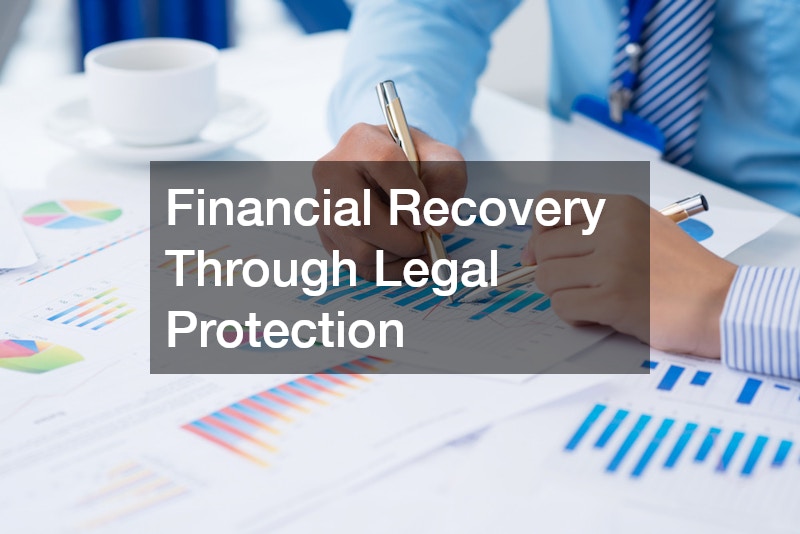In today’s multifaceted world, individuals are constantly navigating through a labyrinth of systems and structures that govern our daily lives. These structures, ranging from educational institutions to governmental regulations, significantly impact our personal and professional liberties, demanding that we stay alert and exercise our rights when necessary. The interplay between authority and personal rights is particularly critical in areas like education, commerce, law, and finance, where the foundations of societal power are deeply entrenched. Understanding these systems allows individuals not only to thrive within them but also to push for necessary reforms. The concept of exercising your right is central to this discourse, acting as both a protective mechanism and a tool for empowerment. This article explores how individuals can engage with structures of authority across a variety of domains—from education and legal defense to financial planning and digital strategy—while ensuring they exercise their right to be informed, represented, and protected.
How Educational Institutions Reflect Systems of Authority
Educational institutions hold significant influence, reflecting broader power structures. One prominent area of comparison is in the advantages of private schools, which often include greater curricular flexibility, selective admissions, and additional resources. However, these advantages may contribute to educational inequity. To address this, parents and students must exercise their right to seek transparency in school offerings and advocate for equitable access to quality education.
The advantages of private schools can be beneficial, but only when paired with accountability. Stakeholders should exercise their right to ask questions, demand clarity on tuition and outcomes, and participate in policy conversations about fairness in admissions, funding, and curriculum development.
Educational equity also depends on broader community participation in school board meetings, local education committees, and policy reform efforts. These forums provide opportunities for parents, educators, and students to exercise their right by voicing concerns, proposing solutions, and holding institutions accountable. Whether advocating for inclusive programs, fair admissions practices, or improved funding for under-resourced schools, meaningful change begins when communities unite to challenge disparities. The advantages of private schools should not come at the expense of public access to excellence, and it’s through collective engagement that systems of authority are most effectively rebalanced.
Regulation and Representation in Commercial Visibility
How a business presents itself publicly often starts with business signs. These signs are more than marketing tools—they are also subject to municipal codes and regulations. As a business owner, you must exercise your right to understand signage laws and ensure you’re treated fairly in zoning and permitting decisions.
Business Signs are also symbolic. They convey professionalism, location, and credibility. If local ordinances limit your options, it is essential to exercise the right to participate in public meetings or petition for updates that support small business visibility without sacrificing community standards.
In addition to compliance, visibility challenges often intersect with broader issues of economic equity. Minority-owned and small local businesses can face disproportionate barriers in gaining approval for signage that meets both branding and legal standards. In such cases, it becomes even more important to exercise your right to advocate for inclusive policies that support fair representation in commercial spaces. Collaborating with local chambers of commerce or business development councils can amplify your voice and help push for regulatory reforms that allow Business Signs to reflect the true diversity and vibrancy of the community.
The Role of Compliance in Building an Effective Online Presence
In today’s digital-first economy, effective websites are essential for visibility, credibility, and engagement. But a well-built site also needs to comply with legal standards regarding privacy, accessibility, and digital transactions. By staying informed and compliant, you exercise your rights to build a secure and trustworthy platform for your audience.
To make the most of effective websites, business owners must understand data collection rules and consumer protections. Whether you’re building or updating a site, take the opportunity to exercise your rights by learning about digital compliance laws that protect both you and your users.
Beyond technical requirements, ethical digital practices are becoming just as vital. Consumers expect transparency in how their information is handled, and businesses that fail to meet these expectations risk losing trust. By prioritizing transparency, responsiveness, and data integrity, you exercise your right to create an online presence that not only complies with regulations but also aligns with evolving social and ethical standards. A commitment to responsible digital engagement ensures that effective websites serve not just as marketing tools but as trusted platforms for meaningful interaction and long-term loyalty.
Law, Infrastructure, and the Movement of Goods
Modern commerce depends heavily on logistics and economic development. Infrastructure growth, transportation systems, and trade routes are all tied to legal policy. Whether you operate in shipping, manufacturing, or supply chain management, it’s crucial to exercise your right to understand and influence legislation that shapes the movement of goods.
Logistics economic development also affects local and national economies. Small businesses, in particular, must exercise their right to advocate for investment in fair, efficient infrastructure that benefits local operations as well as global trade connections.
Infrastructure decisions are often made through public-private partnerships, regional planning boards, or legislative initiatives—forums where business owners and citizens alike can exercise their right to voice priorities and concerns. From road expansions that affect delivery routes to zoning changes that impact warehouse locations, every policy shift has real-world consequences for supply chains and bottom lines. Engaging with policymakers, submitting public comments, or joining local business coalitions allows you to advocate for logistics economic development strategies that reflect your operational needs and long-term growth goals.
Knowing What Your Business Is Worth—and Who Decides
Local business valuation is not just a financial process—it’s a legal and strategic one. Entrepreneurs and small business owners must exercise their right to participate in the valuation process, ensure transparency in financial documentation, and dispute inaccurate assessments when necessary.
When third-party analysts or banks determine your local business valuation, it directly affects loans, investor interest, and sale potential. Always exercise your rights to review methodologies, request independent audits, or consult legal experts who can protect your interests.
Valuation outcomes can also influence tax liability, business succession planning, and eligibility for grants or incentive programs. For these reasons, it’s essential to exercise rights not only during formal assessments but also during policy discussions that define valuation standards. Participating in local economic development initiatives or industry advisory panels allows business owners to help shape the benchmarks by which success is measured. In doing so, you reinforce the importance of a fair and contextual local business valuation process that acknowledges the full scope of your company’s impact and potential.
Who Governs Your Finances? Inside the Tax System
Understanding your financial rights starts with knowing the rules of taxation. A trusted tax preparation service not only helps you file your returns but also ensures you avoid penalties and access all eligible credits. This process is one of the clearest ways to exercise rights in financial self-advocacy.
Tax policy affects your wallet more than most people realize. Use your voice to exercise your right by attending public hearings, questioning discrepancies, and challenging unjust taxation. With support from a tax preparation service, you can claim what you’re owed and hold taxing authorities accountable.
Beyond personal filings, staying informed about proposed tax legislation and budget allocations allows you to exercise rights on a civic level. Small business owners, freelancers, and everyday taxpayers can all influence how tax dollars are collected and spent by participating in local forums or contacting elected officials. Partnering with a knowledgeable tax preparation service not only keeps your records clean, it positions you to engage meaningfully in financial policy discussions that affect your livelihood, community investments, and future economic opportunity.
Financial Recovery Through Legal Protection
When debt overwhelms your financial landscape, bankruptcy attorneys provide a legal path to recovery. They help protect your assets, restructure payments, and defend your rights. If you’re facing insolvency, it’s critical to exercise your right to representation and relief through proper legal channels.
Bankruptcy attorneys are there to ensure fair treatment, not just from creditors, but also from the system itself. If your financial situation feels unmanageable, don’t wait—exercise your rights to regain stability through legal support that advocates for your future.
Rebuilding after bankruptcy requires more than legal closure—it demands strategic planning and access to trustworthy financial education. By working closely with bankruptcy attorneys and credit counselors, you can exercise your right to a second chance that includes informed decision-making and long-term financial health. From protecting essential assets to understanding credit rehabilitation options, the path forward becomes clearer when you know your rights and act on them. Legal protection is not just about resolving debt—it’s about restoring stability, dignity, and future potential.
Understanding Your Rights in Disability Claims
Navigating government benefits programs can be frustrating. Social security disability lawyers specialize in helping clients understand eligibility, gather the necessary documentation, and appeal denied claims. Their guidance empowers you to exercise your rights to access the support you need.
Too often, qualified applicants are turned away or delayed due to red tape. That’s why working with social security disability lawyers matters. They help you exercise rights to be seen, heard, and granted what the law entitles you to receive.
Beyond individual cases, systemic delays and denials in disability claims highlight the need for policy reform. Advocacy groups and legal professionals continue to push for streamlined processes, clearer communication from agencies, and more equitable evaluation criteria. By supporting these efforts and sharing your experience, you can exercise your right to not only secure personal benefits but also contribute to improvements that help others facing similar barriers.
Additionally, it’s crucial to recognize that disability law intersects with other areas of civil rights, such as workplace accommodations, housing access, and healthcare equity. Social security disability lawyers often coordinate with other advocates to ensure comprehensive legal support. Whether you’re pursuing benefits or defending against discrimination, you exercise rights to live with dignity, autonomy, and full participation in society.
When Accidents Happen, Know Who’s Liable
If you’ve been injured due to someone else’s negligence, personal injury lawyers are your first line of defense. They ensure you understand your legal standing and help you exercise your right to compensation for medical costs, lost wages, and suffering.
From car accidents to slip-and-fall incidents, personal injury lawyers specialize in advocating for justice. If you’ve been wronged, do not hesitate to exercise your right to take legal action and hold others accountable.
It’s also important to recognize that injuries often have lasting effects beyond the physical. Emotional trauma, loss of mobility, and changes to quality of life deserve just as much legal consideration as visible injuries. Personal injury lawyers work to ensure that settlements or judgments reflect the full scope of damage suffered, not just immediate expenses. By documenting your experience thoroughly and seeking informed representation, you exercise your rights to be fully and fairly compensated for the long-term impact of someone else’s negligence.
Moreover, personal injury cases can spark broader discussions about safety standards in public spaces, workplace environments, or consumer products. Whether it’s demanding better road maintenance or advocating for improved safety features in commercial buildings, victims and their advocates can exercise their right to drive systemic change. By holding responsible parties accountable, each legal action contributes to creating safer environments and preventing future harm to others.
Navigating the Legal Consequences of Road Offenses
Whether it’s a speeding ticket or a more serious driving infraction, traffic violation lawyers are vital in protecting your record and driving privileges. With the right counsel, you can exercise your right to contest unfair citations and seek reductions or dismissals.
Traffic violation lawyers also play a key role in informing drivers about the long-term impacts of traffic charges. If you’re cited, act fast—exercise your rights to legal representation and a fair hearing in court.
Beyond individual cases, recurring traffic citations and uneven enforcement patterns often reveal deeper issues in local transportation policy. Communities can exercise their right by advocating for fairer traffic laws, improved signage, or safer road conditions through city councils or transportation planning meetings. With guidance from experienced traffic violation lawyers, drivers can also challenge systemic practices that disproportionately affect certain neighborhoods or demographics. Engaging in these broader efforts not only protects individual rights but also promotes equitable and accountable road safety standards for all.
Across every topic—from education and commercial compliance to financial law and road safety—one theme is consistent: you must exercise your right. Whether that means hiring traffic violation lawyers, speaking up about the advantages of private schools, or demanding fair assessments through local business valuation, your active participation shapes outcomes that matter.
Every individual has the power to question, participate, and push for fairness. As society becomes more complex, so does the need to stay informed and engaged. When you exercise rights, you’re not just protecting yourself—you’re shaping a system that reflects your values and protects your future.










